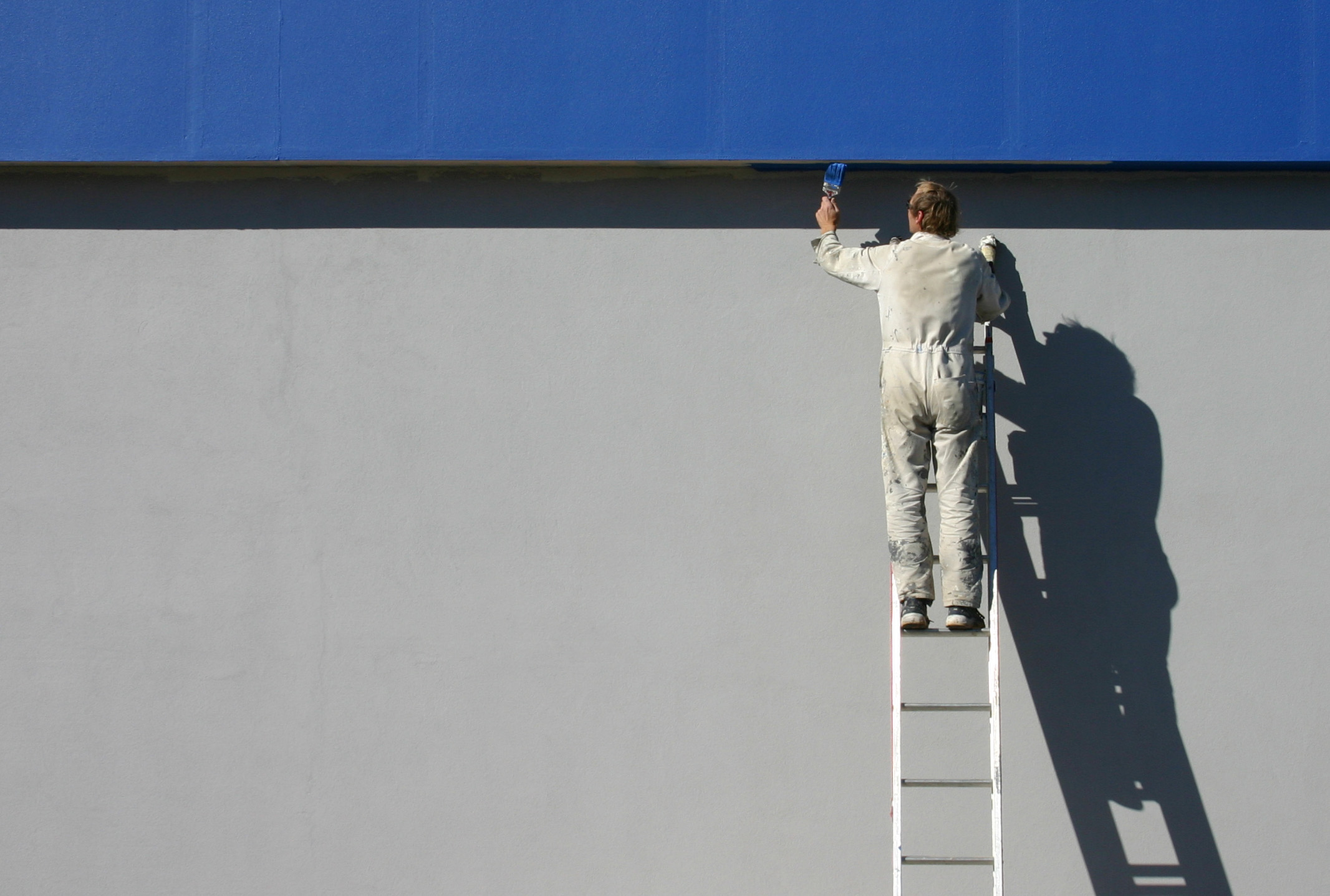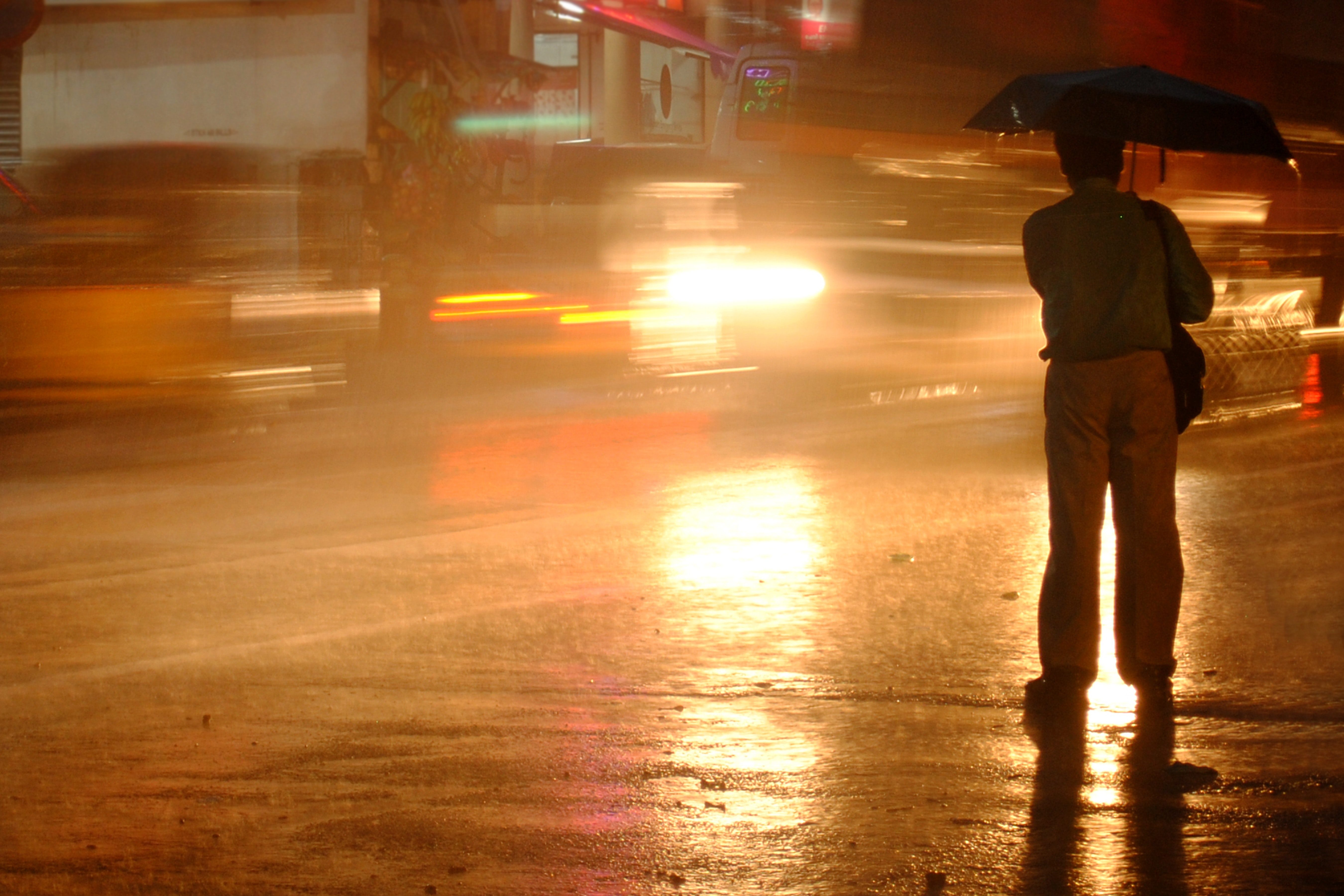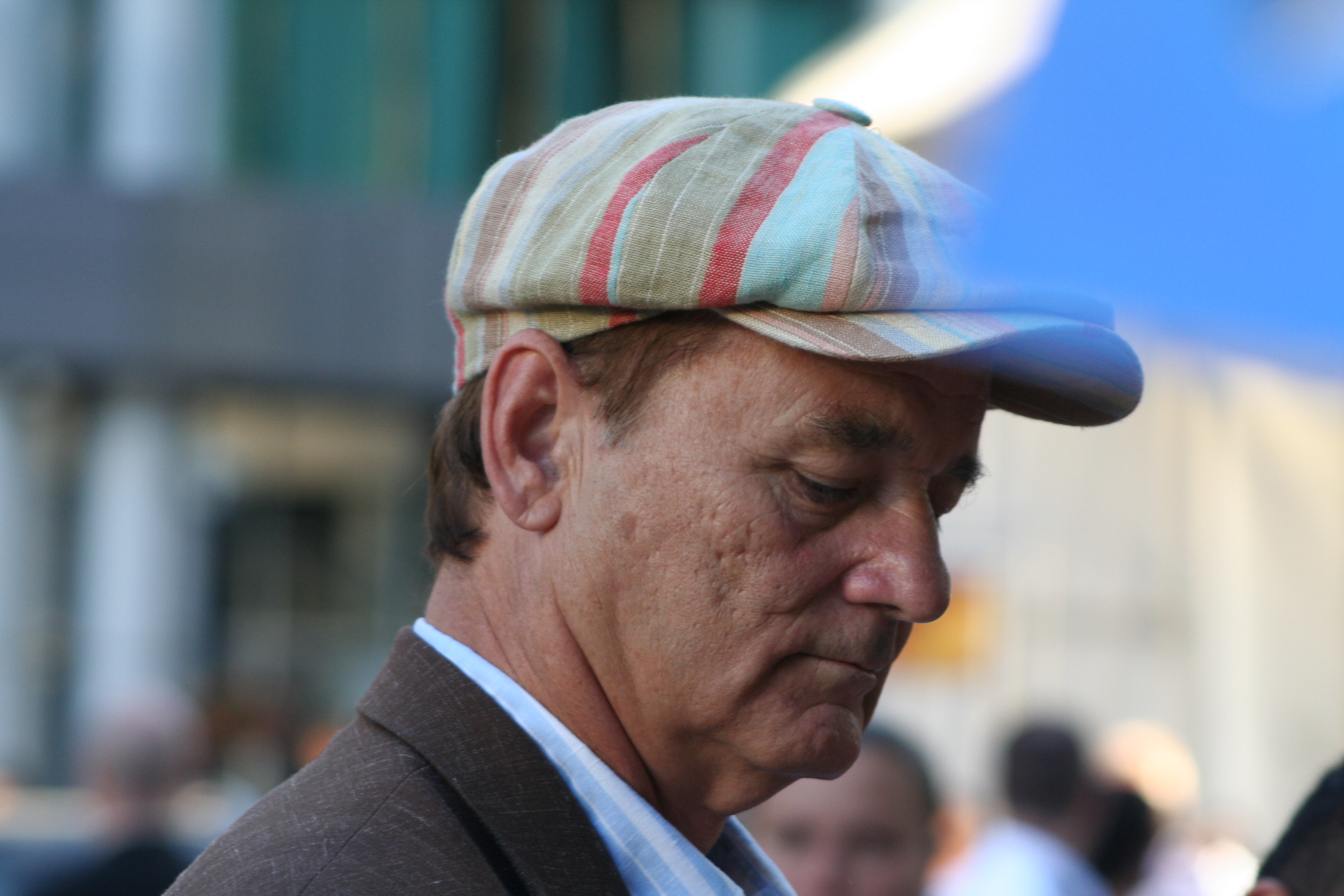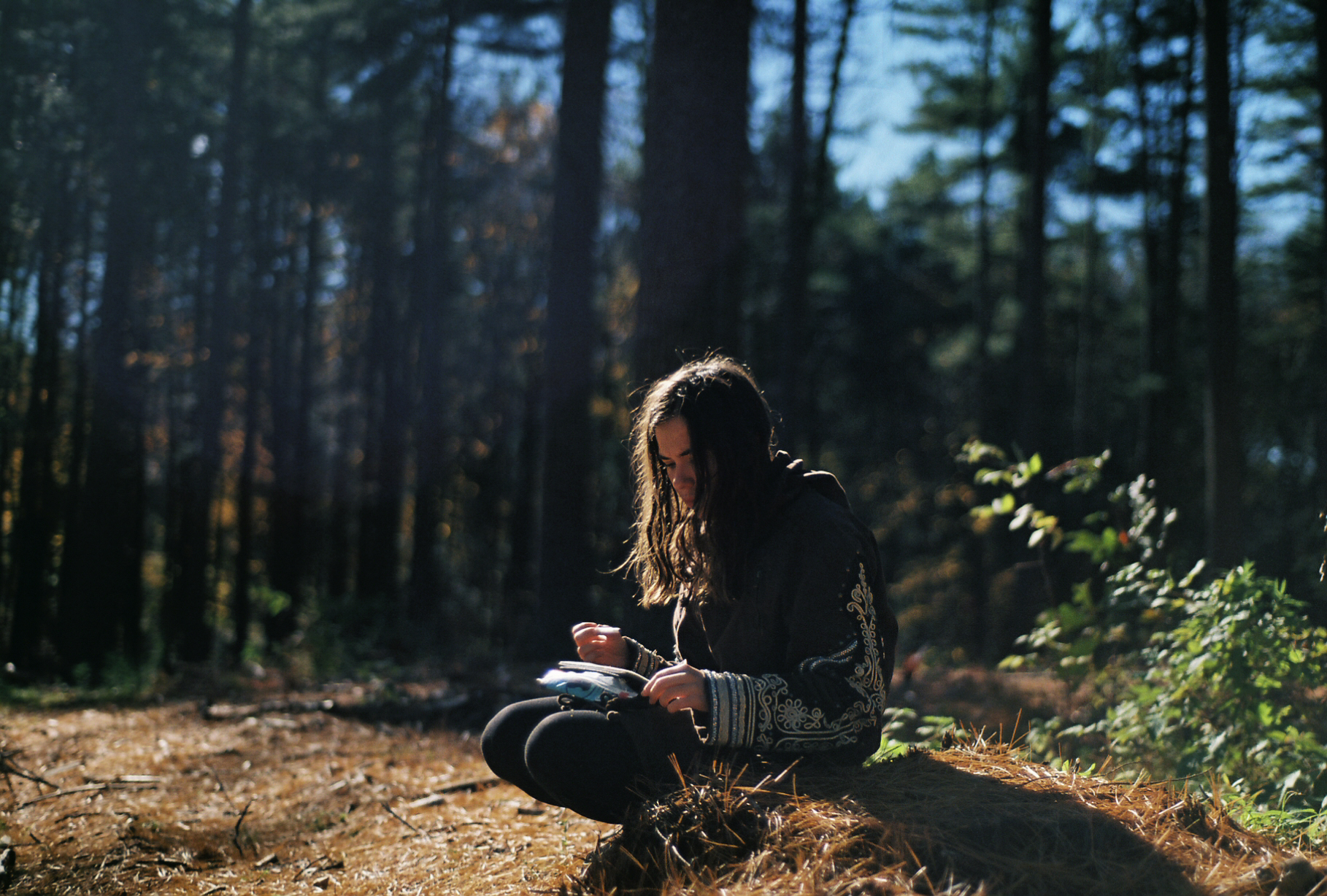I guess you could say I was pretty crazy back then, but crazy is a relative thing, and a lot of the people I hung around with at the time—most of them, in fact—would have said that I was the sane one, the sensible one. Nobody who saw me go off the ladder that day would have said that—at least not about the ladder incident—but where most things were concerned I seemed to be the guy who was generally considered to have his head on straight. Which maybe says more about the people I was hanging around with than it does about me.
It was 1972, and the job was on the north side of St. Louis, Ridge Street, off Union, the poor part of town: a government subsidized rehab—the sloppiest, cheapest, least professional job I have ever been on before or since. The site was a fair-sized brick house tightly squeezed between two other nearly identical brick houses, and we were painting everything but the bricks: ceilings, walls, windows, doors, outside trim, back porch including steps and floor, front porch with wrought iron railings, cellar windows, the works. Plus we were wallpapering two of the rooms on the first floor, which is a job it still makes me sick to think of, since I had never hung wallpaper before and neither had Bobby Nixon, and the mess we made of it would never have been accepted on anything but a government job.
Now there are really two things I want to tell you about that job, but there are other things you have to know to get the feel of the times, so that the story has the right perspective. And there are a lot of people involved, so you have to pay attention. One of the background things is the business of the ladder, and I will tell you that right now, which will show you what I’m talking about.
There was a narrow walkway between the house we were painting and the one immediately to the east, and it formed a kind of crevasse of brick, about three feet wide. I was painting the roof overhang, the soffit and fascia, and the gutter that hung there. It was not easy getting the ladder in place; you had to raise it along the length of the alley, then turn it and push the feet back against the house next door so that the ladder and the two facing walls formed a kind of letter N, only steeper. Once it was positioned you could only get up it by climbing the back side of the ladder for about the first six or eight feet, then swinging around to the front to go the rest of the way up—this while juggling paint cans. That swing from the back to the front of the ladder was a delicate thing, and the rest of the climb was uncomfortable too, as the ladder was far too close to vertical. At the top I would hang my paint buckets from the gutter with bent coat-hangers and paint as far as I could stretch without moving the ladder. I hated to move the ladder; it meant doing that snake dance back down, awkwardly muscling the thing over a few feet, then scaling it again. On the other hand it was dangerous to stretch too far to either side when you were up top because you ran the risk of toppling the ladder sideways and falling the two stories to the concrete walkway, with the ladder probably wrapped around you in the bargain.
Then I got an idea. I could rest my back against the neighboring house as I worked. What if I just wedged myself between the houses like a rock climber? My legs were long enough, and my boots didn’t slip. The Statesman—who was working on that job too for a while—came looking for me about a half an hour after I’d come up with this. When he saw me—eighteen or twenty feet up, and equally far from the ladder, my back against the house behind me, my feet pressed against the one before me, whistling a tune and merrily working the white paint into the old and crumbly wood, and then spreading the black paint over the rusty gutter—when he saw me up there like that, he freaked. This is the same guy who on another high job suggested that we tie the safety ropes around our necks, so that rather than saving us if we fell they would make us so careful that we wouldn’t dare slip up. Now he was telling me I was unsafe. And he got Bobby out there too, who said I was crazy, but in a way that I could see he was actually impressed. To me it didn’t seem crazy, just expeditious; daring, yes, but not dumb. So that will give you an idea of what my thinking was like in those days.
Here is how we got the job: Crazy Jake—a Viet Nam vet who was going out with Monica who lived at our house—came in one day when The Statesman and I were painting the living room. We were both nineteen, and were on a kind of hiatus from academia that spring, me having lost all my grant money, and The Statesman I don’t know what. Crazy Jake said, —H ey, you guys are pretty good, if you ever need a job I’ve got an army buddy who has a painting business. Two days later, at eight o’clock in the morning, we were banging on the door of the house on Ridge Street. The guy we were supposed to meet wasn’t there. But Bobby, Bobby Nixon—not a good name to have in those days—he was there, and he yelled for us to come on in.
We followed his voice to the bathroom. He was a skinny guy with longish light brown hair and wide eyes, and he was sitting on the commode with the door open. He welcomed us to the job, introduced himself, and asked us our names like it was the most natural thing in the world to be breezing with us while he was on the pot. He said that he couldn’t hire us, but the boss, Kenny Nolan, would be around pretty soon. He suggested that we go get breakfast if we hadn’t eaten, and we could bring him back something. We got some vulcanized eggs—The Statesman’s term—and some coffee, at the McDonald’s on Union, and brought it back to the house. We were just finishing up our coffee in the empty dining room when we heard the front door burst open like it had been kicked in. A bellowing voice yelled, —Where’s my fucking painters? Nixon, you republican son of a bitch.
I nearly spilled what was left of my coffee and The Statesman jumped like Jack in the Beanstalk when he heard the Giant shouting “fi fie fo fum.” Bobby Nixon was calm. —In here, boss, he called out. Then he turned to us. —Boss is here.
The guy who came into the room then was big, six three or taller, two fifty, with a bushy red beard and a red Cardinals ball cap. —You the guys Jake sent over? he asked us in a voice that echoed through the empty house.
—Yeah, we said, almost simultaneously.
—Well what are you doing sitting around?
Bobby Nixon interceded for us: —I told them to wait for you, that I couldn’t hire them.
—Shit, the big guy said, —You’re hired, okay? Now get to work.
The Statesman and I got up and started looking for something to do. Then the big guy shouted again: —Jesus, you guys are too nervous, finish your coffee, hell.
He smiled then and stuck out his big hand. —I’m Kenny Nolan, Big Kenny, and if you guys are jake with Jake you’re jake with me.
He got our names then, and we went out to his step-van and unloaded some buckets of paint, a stepladder, half a dozen cheap brushes, and two rollers. Then he jumped into his truck and headed down the street with a painful grating and clanking of gears. But before he got to the end he stopped with a screech, ground it into reverse and careened backwards up the street and back to the house.
—Nixon, he shouted, —I guess this means you’re foreman now, but don’t expect a fucking raise.
He drove off again.
It was the kind of job where you were always hoping the materials would be there when you needed them, but half the time they weren’t. We would come in in the morning to find new buckets of paint in the front hall with scrawled notes from Kenny Nolan saying what they were for; and whether we worked inside or out depended more on which paint we had than on the weather or any master plan. At first we worked mostly inside, Bobby Nixon and I brushing the trim and The Statesman rollering the ceilings and walls. This was an arrangement that suited us; The Statesman’s natural impatience made it difficult for him to work with brushes and to do trim; me, I was a brush man—something about the feel of spreading the paint that you didn’t get with rollers—and I had a steady hand, so cutting in edges was my specialty. And windows.
Now painting is terrible work if you have to do it alone, but if you have a partner who is a conversationalist, like The Statesman, it can be quite pleasant. What makes it terrible if you are alone is how boring it is. As The Statesman would say, it only takes a very small portion of your brain to paint. And this is what makes it nice if you can carry on a conversation while you are doing it; there is no job that distracts you less from conversation than painting. That said, I have to admit that I don’t remember much of what The Statesman and I talked about while we painted that house, but I do remember that we went into elaborate flights of fancy and long discussions of politics. That might have been when we hatched the plot to take out Richard Nixon with a crossbow; I’m not sure; anyway, nothing came of it, obviously. Bobby Nixon listened to us quietly, and I think he was a little in awe of us. It was a disappointment when the outside paint got there and there was only the one extension ladder and The Statesman and I hardly saw each other for a while. We were both glad when all that outside ladder work was done, and we could work together again inside.
Here is something else that happened while we had that job: One morning The Statesman and I discovered a rusted metal protrusion hanging from the quarter panel behind the left rear tire of his car. The car was an old white Bel Air station wagon. We looked at the red-brown lump from every angle. We could not think of what had caused it, but we had to go to work, and we decided not to worry about it. As we rounded the right-curved entrance ramp to Route 40, the rusty bulge scraped against the ground and trailed sparks.
—I know, said the Statesman, studying it again when we arrived at the job, —A tumor, the car has developed a tumor.
—Of course, I said, —How could I have not seen it myself? Congratulations, Doctor, a brilliant diagnosis.
Some days later we stopped for gas. I got out and went around to open up the tank. When I lifted the little access door I couldn’t see anything. The fill pipe and gas cap were gone. I reached in and felt around. The fill pipe had slipped deep into the fender. This was what the tumor was. The gas tank had slipped its moorings and was scraping against the ground and making sparks when we made right turns. We tied it up with rope. The scraped part felt soft and thin as paper, but somehow it hadn’t sprung a leak. When I considered what might have happened, maybe on the next hard right, that tumor business worried me more than the ladder trick.
Another thing you should probably know about those days is that some mornings Bobby Nixon and I would smoke a joint on our coffee break. Or on our lunch break. And sometimes Big Kenny Nolan would join us for our afternoon soda break, and he would usually pass a joint around. The Statesman didn’t smoke back then. He was planning to go into politics someday, and no one who knew him doubted then that he would do it. That was why we called him The Statesman and it might have been part of the reason he didn’t smoke. Now he does and I don’t. That’s one of the ways things have changed, although that was a change that didn’t come for a long time after the times of this story.
Here is one of the main things I want to tell you: One day The Statesman and I were painting the downstairs bathroom, the one where we had first met Bobby Nixon. The Statesman was painting the ceiling ceiling-white, and I was painting the walls robin’s-egg-blue. He had finished with the roller and was cutting in the edges with a two-inch brush. I was using a big four-inch brush which I liked because I could cover large areas and still do a lot of edge work with just the one brush. We were talking about something, and the discussion got heated, but we still had enough attention left over that he could paint up to the wall, and I could cut in almost right behind him. We were working so close together that we were standing on opposite sides of the same step-ladder; he was on the step side, and I was balanced on the back, with my feet lightly wedged into the crooks of the crossbraces. As I said, the conversation we were having got heated—but that was normal, we were more animated than angry, or so I thought—and suddenly he brought his brush down and spread a swath of ceiling-white over the blue that I had just painted.
My own brush took off as if by itself, and it described a kind of slow-motion flip through the air and landed with a plop in the paint can. Then my arm flew out with a force that seemed to come from outside myself, or from so deep inside that I knew nothing of it, and I backhanded The Statesman across the face. Hard. He jumped back and down, his side of the step-ladder came up off the floor, and I lost my balance, felt myself falling backwards. I had both feet stuck in the V’s of the crossbars, couldn’t get free, and nearly took the whole works to the floor. The Statesman managed to grab and steady the ladder then, and everything stopped. The paint cans were swinging from their coat-hanger hooks. A radio was playing in a room far away.
—Jesus Christ, he said, —What the hell’s wrong with you, are you crazy?
And then I saw what I had done, saw in his eyes that he had not taken it as a joke, saw in myself that it had not been a joke somehow. I had smacked him in the face. I guess we were both fighting back tears by now, him of shock, rage, and frustration, me of shame. A red splotch was coming up on his cheek, and I felt my own face flush. I told him I didn’t know what had come over me, and I didn’t. I guess I still don’t.
We worked in silence for a while, both adrenaline jittery, and I think I dropped my brush and then nearly tipped my paint can over. We never spoke of it again.
My last memory of The Statesman on that job is of looking for him after one of the smoke breaks. I can almost feel the panicky edge that the moment had from the pot. I was going from room to room, calling his name. I got all the way to the top floor without finding him and I was scared: that he was gone? that something had happened to him? what? I ended up leaning out of one of the attic windows that faced onto the street at the front of the house. It was one of those dazzling blue days of spring and there he was, out in front of the house, in the bright sunlight, spreading the smooth black gutter paint with a wide brush onto the white hood of his car.
—What the hell are you doing? I shouted down, laughing, glad in my stoned heart to see him.
—Anti-glare, he shouted back, his bright teeth glinting in the sun.
I don’t remember how or why he left the job, though I have a vague recollection of a scribbled missive on the refrigerator door that said in part by the time you read this note, I’ll be in Terre Haute, but that might have been later. I also don’t want to give the impression that that was the last time I saw him either, because The Statesman and I remained good friends for years, which is pretty amazing considering some of the things that came later.
Anyway, after The Statesman left the job I started getting a ride in with Bobby. Then one day Kenny Nolan came crashing into the house with a new guy who was supposed to replace The Statesman and help Bobby Nixon and me. Big Kenny himself I never saw pick up a paintbrush. This guy he brought around was a real marvel though, younger even than I was, and already fried. He was a sad sight to see, with watery eyes, frizzy blond hair, and a vacant grin, who would do any drug you put in front of him. I don’t remember what his real name was, but we called him Space. I think that’s how Big Kenny introduced him, and Space didn’t mind, was probably proud of it. But he couldn’t really work alone, and Bobby and I were into the wallpapering by then and had all we could do to try to get the stuff to stay on the walls. Don’t even ask me about matching up the pattern. Space was almost more trouble to have around than he was worth, and Bobby and I had to go back behind him later and redo a lot of his work. Space took no offense at this; he seemed to think that Bobby and I were perfectionists and took ourselves too seriously. Plus I think I felt it was an insult to The Statesman that this guy was supposed to be his replacement, so I resented him a little. After the wallpaper was done, such as it was, Space and Bobby paired up painting the back porch, and I worked alone doing the upstairs windows. I was glad to be alone then, which I probably should have seen was not a good thing. I liked to lean back out of the high windows when I was stoned and watch the reflections of the passing clouds in the glass as I worked.
The last day of that job I was doing the third floor windows and a storm was brewing. Somehow we got all the work done by the middle of the afternoon, and Big Kenny had come to pay us, and we were all sitting up in the attic. The house had a hip roof with dormers on all sides, and the attic was one big room with a complex and whimsical geometry of steep angled ceilings, slanting walls, and an abundance of windows. It was a place made for getting high, and that is what we did while waiting for the storm. Nobody had any papers, and Kenny—who had brought like a quarter pound with him in a shopping bag—was pissed, and his red ballcap was bobbing up and down as he shouted, —You assholes are all fired if nobody finds me any papers. Finally somebody came up with a couple of those brown handwipes that you find in public restrooms, and we rolled a couple of huge joints and they tasted horrible, and I figured that I was probably poisoning myself by smoking that disgusting burning brown paper. But I smoked it anyway. And I remember being high and looking out the back windows at the gathering clouds, and feeling that pushing inside your ears that you get when the barometer is falling like crazy, and then seeing the color of the light change to that greenish yellow that they say means a tornado. I even saw two masses of clouds just a little to the north moving together and starting to swirl into one another, and I thought, —Yeah, I’m going to get to see a tornado, come on!
Not much later there was thunder and lightening and a fantastic downpour, no tornado. I don’t remember what happened to Bobby Nixon that afternoon, but for some reason I rode home that night with Big Kenny and Space in Kenny’s step-van. The wipers didn’t work in that truck and it was still pouring rain, and Kenny thought that the ride would be even more fun if he made Space drive, which he did, and I was not so crazy that I wasn’t scared half to death. And on the way home we stopped somewhere, and Space and Kenny snorted some coke with some people I didn’t know. I was offered but passed, and Kenny said to me—the only time he ever talked to me in a quiet voice—that I was smart to pass, and it was a good thing for me to stay away from. Which is a piece of advice that if I had heeded it later on things might have gone a little differently. But that’s something else.
I said that I wanted to tell two things about that job and I have told them. How I hit my friend and how I wished for a tornado. To this day I don’t know why I hit him like that, but I know that it shook me, and it made me think that even though other people seemed to think I had my shit together, that sooner later I was going to have to admit that something was wrong and there was more to it than a little academic slippage and losing my grants and having to work for a while before I could go back to school. I didn’t know how to read the danger signs then, but I saw, dimly, that I was in some kind of hole. The fact that Crazy Jake, Big Kenny Nolan, or Space thought I had my head on straight didn’t really count for much. I think I thought a tornado would make the hole seem not so bad, or would somehow get me moving to climb out of it. I know more about being in holes now, and I know that what I was in then was barely ankle deep, just a soft muddy patch of road. And I got my tornado too, though it was not what you would call a meteorological event, and it was a while before it came. Quite a few years have passed, but there are times when I still think of myself that last day on the Ridge Street job, hanging way too far out of a high window, shivery with the pot and poison brown paper, my ears throbbing with the suck of the dropping pressure, watching the swirling clouds and cheering them on.
Photo Credit: Lukeroberts via Creative Commons




